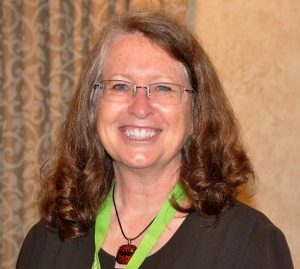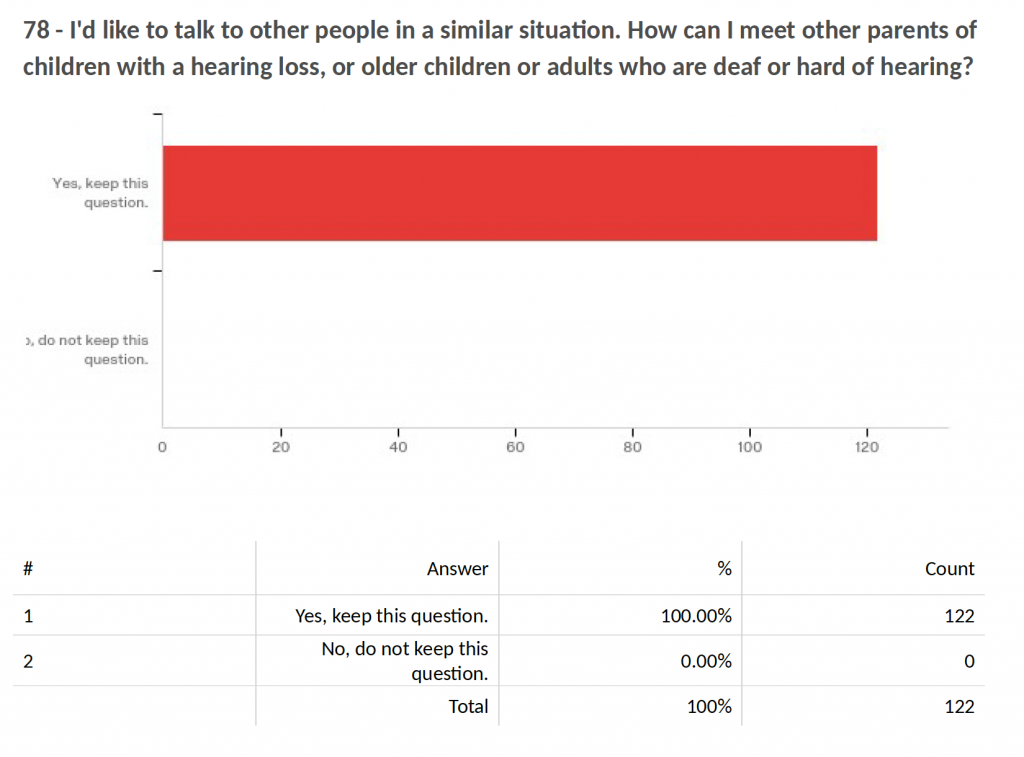 Kris English, PhD
Kris English, PhD
The University of Akron/NOAC
Recently, a panel of pediatric audiologists asked parents for guidance in developing a Childhood Hearing Loss Question Prompt List (CHL QPL). QPLs are used in many specialties in health care to help patients and families remember the questions they want ask, suggest questions they may not have thought about asking, and broach questions they’d like to ask but don’t know how. As a counseling tool, QPLs are very effective for patient education as well as for the open invitation to discuss important or difficult topics, and to equalize the power dynamic in a health care appointment.
One Question Stands Out
The CHL Question Prompt List underwent several stages of review, and the final version can be found here. The report on this QPL does not include a breakdown of each question and degree of support, but one result is a stand-out and is worth highlighting here: of all the questions reviewed to keep or reject, the only question that was approved by 100% of parent reviewers (N = 122) was this one:

Any unanimous response is rare, but this one really should come as no surprise: research has long reported parents’ desire to connect with other parents for support. Parents in Mueller et al.’s (2009) study valued access to other parents as a source of information and emotional support, and a sense of being in a larger family. Other benefits include gaining new skills to deal with day-to-day issues, increasing a sense of power and belonging (Law et al. 2009), and reducing stress (Hastings & Beck, 2004). Parents of children with hearing loss have specifically identified their “predominant need” as meeting other parents (Luterman & Kurtzer-White, 1999), and the provision of these support services is described as a “state-of-the-art practice in family counseling” (Jerger, Roeser, & Tobey, 2001).
What to Do With This Information?
This web forum focuses on audiology counseling, but we must recognize our limitations. We cannot help parents the same way other parents can. In addition to providing every professional support possible, we can also:
- Support a parent group in our community (provide space, communication mechanisms [newsletter, website], etc.)
- Provide parents contact information about existing groups in our community and online (e.g., Hands&Voices)
- Maintain and share a list of “veteran parents” who generously volunteer to provide one-on-one support, especially to those new to “the journey.”
Conclusion
Once again, parents have spoken. Will we act as well as listen? What can we do in our communities to meet this full-throated request for support?
References
Jerger, S., Roeser, R., & Tobey, E. (2001). Management of hearing loss in infants: The UTD/Callier Center Position Statement. Journal of the American Academy of Audiology, 12(7), 329-336.
Law, M., King, S., Stewart, D., & King, G. (2002). The perceived effects of parent-led support groups for parents of children with disabilities. Physical and Occupational Therapy in Pediatrics, 22(2/3), 29-48
Luterman, D., & Kurtzer-White, E. (1999). Identifying hearing loss: Parents’ needs. American Journal of Audiology, 8(1), 13-18.
